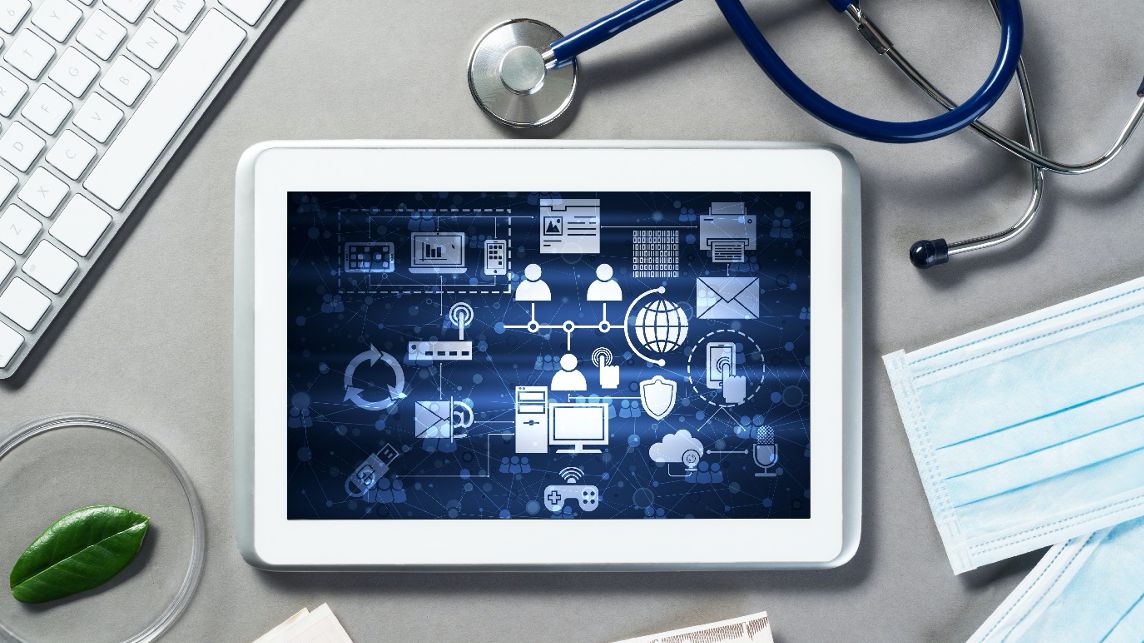
Society and industry are moving towards an ever-increasingly globalised and digitalised world. Localisation, where a translation is adapted to fit a particular country or region, has a critical role to play. Although 50% of English speaking consumers say they are more likely to buy if the website is written in English, 9 out of 10 buyers will ignore your product if it is not in their native language.
The more that a customer understands about a product, the more confident they feel and the more likely they are to purchase or use a service. Localisation increases trust and makes the customer feel valued, which is especially important in the Life Sciences sector, where buyers are making decisions about their health and well-being.
The expansion of Life Sciences continues with no signs of slowing down and is projected to be worth around USD 2.5 trillion by 2024. This sub-sector of the healthcare industry includes companies in fields such as biotechnology (biotech), pharmaceuticals (pharma), and medical devices (medtech). It also includes Contract Research Organisations (CROs), which primarily focus on the various stages of research, development, technology transfer and commercialisation of health products and services.
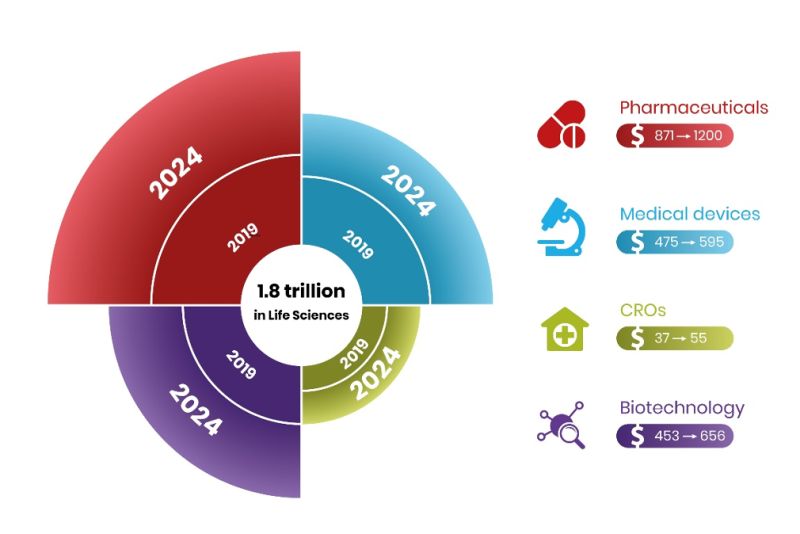
Major investments are made in growing Life Sciences businesses, especially when moving into new markets. Increased global access to health care, along with technological advancements, is transforming the way in which the Life Sciences industry operates. It has led to a more patient-centric approach, with delivery directly to the patient’s home where possible.
The increased transparency, standardisation, communication and usability of new platforms means there is more content to localise than ever and at a global scale. More stringent regulatory standards and access to large swathes of data on analytics, along with artificial intelligence (AI) and blockchain being exploited more and more, are forcing global businesses to react swiftly. Tech giants such as Amazon, Apple, and Uber are also moving into health care and Life Sciences, creating waves in the industry, and new opportunities in their wake.
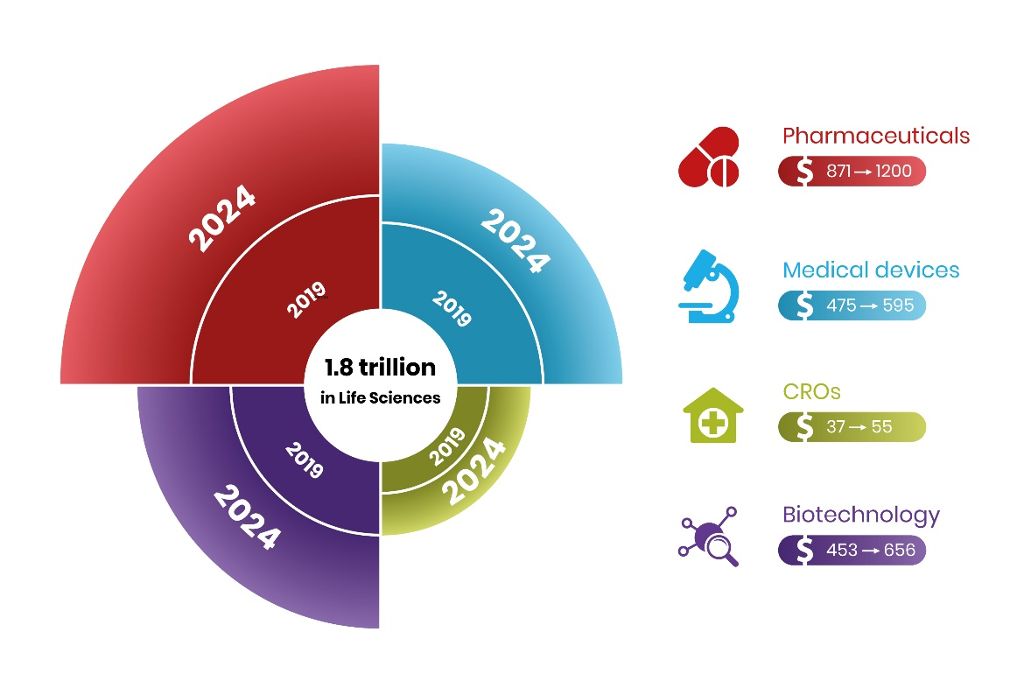
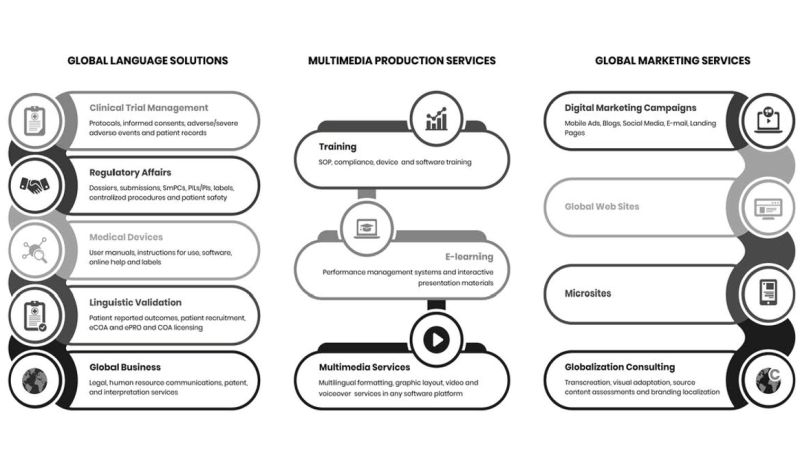
The Covid-19 crisis has put industry changes into overdrive. Those in the Life Sciences industry are re-evaluating their networks to meet the clear need for the global manufacture of new medical devices and medication. New systems have been devised for dealing with measures such as social distancing requirements, as well as the associated supply chain disruptions. This has been felt most acutely in manufacturing thus far, but is spreading to other Life Sciences areas as new methods and approaches to the provision of health care are implemented faster than ever before.
As a result, localisation buyers find themselves facing several challenges. Time, quality and cost are three key considerations when providing products and services to customers on a global scale. There is now increased demand for real-time translations with highly accelerated time frames, the pressure is put on increasing quality while maintaining compliance with tighter regulatory standards and requirements, and the aim to reduce costs and recoup investment quickly is, of course, always there.
All of this, combined with the inevitable increase in global expansion and mergers and acquisitions, has meant that much work is going on behind the scenes to gain a competitive edge while maintaining quality; localisation plays an essential role in this process.
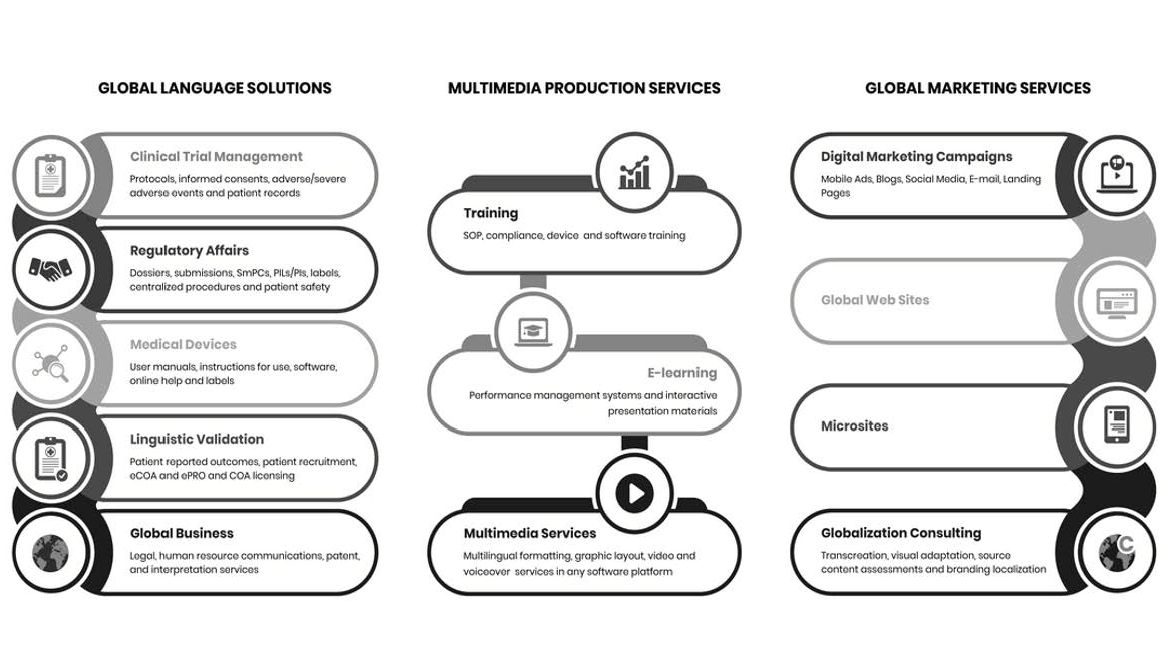
Almost all Life Sciences companies now conduct business abroad, which means that speaking the local lingo is essential. Very few companies have the resources to translate everything in-house, which is where language services providers enter the equation. Given the life-or-death nature of the majority of texts, understanding the translation process has never been more important. In order to ensure that quality standards are met, using a professional agency who can deal with the complexity of this industry, is an absolute must.
European and national regulatory bodies have specific translation terminology that needs to be adhered to, and the introduction of GDPR requirements has placed a further administrative burden on Life Sciences as well, but the sector is facing the challenge head-on. Extensive references, blind CVs of linguists and quality certifications are demanded, and the use of translation memory software and knowledge of the regulatory field goes without saying. Quality localisation allows one to cater for different styles and approaches, while also ensuring approved and consistent terminology is used at all times.
The ramifications of incorrectly performed localisation in health care range from the amusing, for example, a cardiac arrest being translated as an imprisoned heart, to the downright disastrous. One of the most serious but thankfully non-fatal of these, occurred in Germany in 2006-2007, when a translation error on the labelling of prostheses resulted in 47 patients receiving incorrect knee replacements. Thus, localisation blunders can clearly be disastrous in terms of the quality of care provided, the company’s reputation and likelihood of successful expansion, as well as can even leave the company open to litigation. Localisation ensures that you excel when it comes to providing instructions, accurate diagnoses and ensuring a coherent medical history.
Professional medical translation and interpreting services save lives and improve quality of care, and within the Life Sciences industry, incorrect translations could literally be life-threatening. Also, Amandine Lear, Manager of the Language Services department at Icon, a leading CRO, says that language services are often the ‘last link in the chain’ when it comes to product development or patient services. Localisation keeps this link nicely polished, and as a result, the company’s image, too.
Fortunately, many language service providers have long been adapting and are taking advantage of technological advancements to offer tailor-made localisation solutions in all language areas that meet the increasing demands. This means the Life Sciences industry is well-placed to drive standards upwards in order to ensure the fastest, safest, most consistent and clearly communicated medical texts possible, both now and in the future.
Ensure full compliance before 2026. Audit your multilingual documents to prevent compliance gaps, avoid fines, and start the year strong.
Get trusted military and defence translation services from ISO-certified experts. LMI Translations delivers precision and security in every mission.